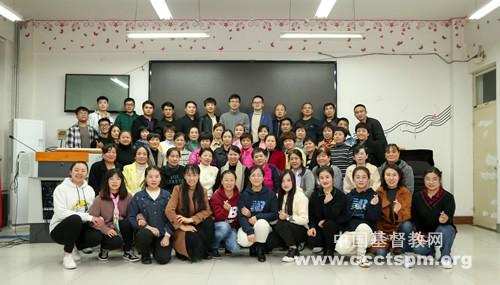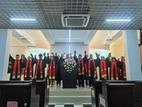Shandong Theological Seminary held a class comparing Chinese classics with the Bible, more than 30 teachers and students attending it on November 17.
The seminary established the interest group for Chinese studies in 2017 as a way to promote the Sinicization of Christianity in theological education and incorporate Chinese traditional culture into the class. Led by Teacher Liu Lili, each week they carry out research and contrast between the Analects of Confucius and other Chinese classics with the Bible, according to the CCC&TSPM.
Teacher Liu led the students in reading the Weizheng Pian of the Analects. Liu gave explanations and provided a vernacular translation, which combined with historical and cultural background helped to further interpret the classic content. In the activities period, the class followed specific educational methods. Liu guided the students in reciting the classics, helping them understand the reason, function, and significance of why Confucius advocated the rule of virtue at that time.
Afterward, they had a group discussion. One of the students, Yang Ziyou, spoke on behalf of the group, saying that a kind father and a filial child, mentioned in the Confucian Analects, could maintain family harmony and also indirectly maintain national security and social stability. As pastors in China, they are able to love their country by actively learning and inheriting excellent Chinese traditions, running a church well in the new era, and striving to maintain religious harmony.
Li Fei, speaking on behalf of the group, said that Confucius’s rule of virtue was consistent with the teachings of the Bible. According to the Bible, the king is to manage the people on behalf of God, and the people should respect and obey those in power. Therefore, pastors should actively guide believers to love the country and religion and be faithful and righteous.
The students said that as the future pastors, they would actively learn and inherit the excellent traditional Chinese culture and inherit the fine moral traditions such as strict self-discipline, self-cultivation, filial piety and respect for the elderly, and helping others. According to the Bible’s teachings of obedience to authority, filial piety to parents and helping neighbors, etc., they would continuously improve their overall quality and service ability through learning and service practices.
-Translated by Abigail Wu












